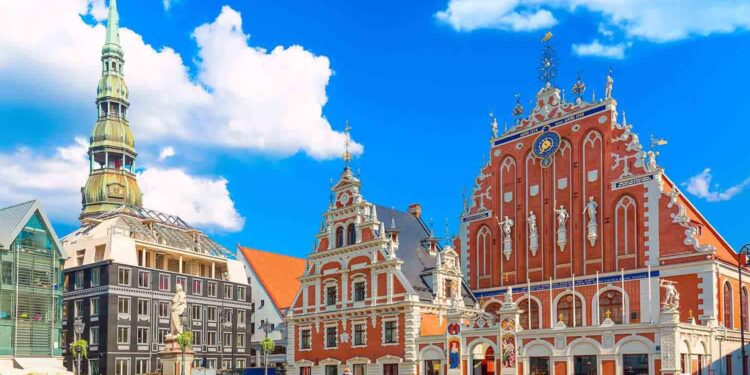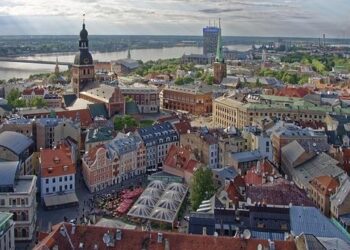Latvia faces a pivotal decision as discussions resurface over the potential removal of several of Russian President Vladimir Putin’s close associates from its sanctions list. This move, closely monitored across the Baltic region and beyond, could signal a shift in Riga’s stance amid evolving geopolitical tensions and diplomatic pressures. The Baltic News Network examines the factors influencing Latvia’s approach, the broader implications for regional security, and the responses from both European allies and Moscow.
Latvian Government Faces Pressure Over Sanctions Policy on Putin’s Inner Circle
The Latvian government is currently under intense scrutiny amid calls to reevaluate its stance on sanctions targeting individuals within President Vladimir Putin’s closest circle. Critics argue that previous decisions to lift certain restrictions may undermine international efforts to hold key Russian figures accountable for their roles in the ongoing conflict in Ukraine. Several opposition leaders and civil society groups have voiced concerns that any softening of sanctions could signal a weakening of Latvia’s commitment to the EU’s unified stance against Russian aggression.
Key voices urging caution include:
- Members of the Saeima demanding stricter enforcement
- Human rights organizations highlighting accountability gaps
- Regional partners emphasizing coordinated policy
| Sanction Category | Current Status | Potential Impact |
|---|---|---|
| Asset freezes | Partially lifted | Risk of enabling financial flows |
| Travel bans | Maintained | Continues restriction on movement |
| Export restrictions | Under review | May affect military supply chains |
Analyzing the Geopolitical Implications of Lifting Sanctions on Russian Elites
The potential lifting of sanctions on Russian elites, particularly those closely tied to the Kremlin, could have far-reaching geopolitical consequences. Latvia, as a member of both the European Union and NATO, plays a pivotal role in shaping the bloc’s stance on Russia, and any shift in its position signals a broader recalibration in regional security policies. Easing restrictions might be perceived as a diplomatic overture, potentially opening channels for dialogue and reducing tensions. However, this move risks undermining the unified front against Moscow’s aggressive policies, sending mixed signals to Russian power brokers and allies in Eastern Europe.
Key considerations influencing Latvia’s decision include:
- Security concerns: relaxation may embolden Kremlin-linked actors.
- Economic repercussions: potential resumption of business ties with sanctioned individuals.
- Political pressure: balancing EU cohesion with national interests.
- Public sentiment: strong opposition among Latvian citizens towards Kremlin influence.
| Aspect | Possible Outcome if Sanctions Lifted |
|---|---|
| EU-Russia Relations | Brief thaw or tactical reset |
| Latvia’s Regional Role | Risk of marginalization or increased leverage |
| Kremlin’s Response | Potential strategic recalibration |
| Sanctions Effectiveness | Questioned, leading to policy debate |
Strategic Recommendations for Latvia Amid Shifting Baltic Security Dynamics
In response to the evolving security landscape across the Baltic region, Latvia must prioritize a strategy that reinforces its sovereign decision-making while fostering cooperative alliances. Maintaining stringent sanctions on figures closely tied to the Kremlin aligns with both international commitments and national security interests. The government should emphasize transparency and broader consultation within the EU framework to prevent backdoor negotiations that could undermine these sanctions. Additionally, enhancing cyber defense capabilities and intelligence sharing with Baltic partners remains critical in deterring covert destabilization efforts.
Key strategic initiatives to consider:
- Strengthening legal frameworks to close loopholes allowing sanction evasion.
- Coordinating with NATO allies for joint military exercises focusing on rapid response.
- Investing in energy independence to reduce leverage held by Russia-linked entities.
- Promoting public awareness on misinformation campaigns targeting Latvian society.
| Action Area | Recommended Focus | Expected Outcome |
|---|---|---|
| Sanctions Policy | Preserve tightening, avoid premature delisting | Maintain international pressure on hostile actors |
| Defense Cooperation | Expand joint Baltic security initiatives | Enhanced region-wide deterrence capabilities |
| Energy Security | Accelerate alternative energy infrastructure | Reduce vulnerability to external manipulation |
| Information Integrity | Boost counter-disinformation efforts | Preserve public trust and political stability |
Insights and Conclusions
As the geopolitical landscape in Eastern Europe continues to evolve, Latvia’s position on the potential removal of sanctions against Putin’s close associates remains under close scrutiny. With economic and diplomatic pressures mounting on all sides, the Baltic nation’s decision will not only reflect its own strategic priorities but also signal broader regional dynamics within the EU and NATO. Observers await forthcoming statements from Latvian officials to gauge whether Riga will maintain its current stance or pivot in response to changing international developments. The outcome will undoubtedly contribute to the ongoing debate over sanctions as a tool of foreign policy in the complex context of Russia’s actions on the global stage.
















